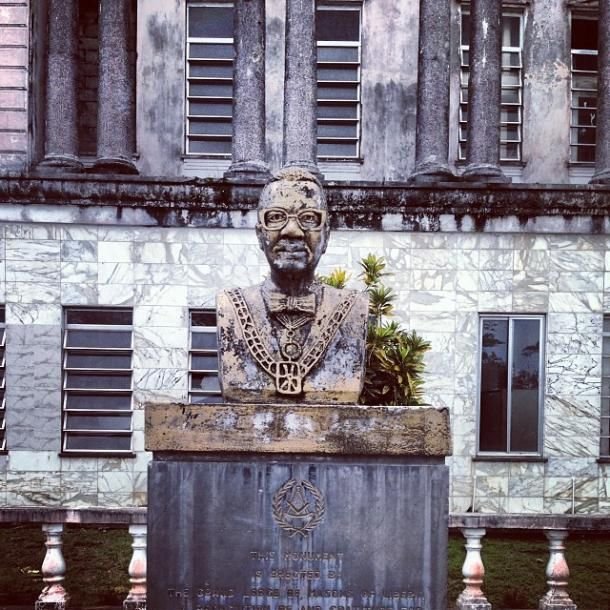Monrovia, Liberia – A new plaque unveiled in the heart of Bridgetown pays homage to the remarkable legacy of Arthur Barclay, the 15th President of Liberia and descendant of Barbadian settlers who journeyed to West Africa in 1865.
Arthur Barclay’s story is one of resilience, determination, and historic significance. Born on July 31, 1854, in Bridgetown, Barbados, Barclay’s journey from the Caribbean island to the shores of Liberia embodies the spirit of the Barbadian diaspora and its enduring impact on the global stage.
As a descendant of Anthony Barclay and Sarah Ann Bourne-Barclay, who were among the 346 Black Barbadians aboard The Cora, Arthur Barclay’s lineage is deeply rooted in the historical connection between Barbados and Liberia. The voyage of The Cora, which departed from the Bridgetown wharf in 1865, marked a pivotal moment in the history of both nations.
Arthur Barclay’s early years were marked by a commitment to education and public service. After immigrating to Liberia with his father in 1865, Barclay pursued his education at Liberia College, where he distinguished himself as a scholar and leader. His upbringing instilled in him a deep sense of responsibility and a dedication to advancing the welfare of his fellow citizens.
Following his graduation, Barclay embarked on a remarkable journey of public service, serving in various capacities within the Liberian government. He held positions such as principal of Liberia College, postmaster-general, secretary of state, and mayor of Monrovia. His dedication to the advancement of education and governance earned him widespread acclaim and respect among his peers and constituents.
In 1904, Arthur Barclay ascended to the presidency of Liberia during a challenging period marked by economic turmoil and internal unrest. Despite these formidable challenges, Barclay’s tenure as president was characterized by visionary leadership, strategic diplomacy, and significant civic achievements.
Under his administration, Liberia made strides in defining its boundaries, pacifying the interior, and modernizing its economy. Barclay’s efforts to negotiate boundary disputes with British and French governments, organize the Liberian Frontier Police Force, and implement domestic reforms were instrumental in shaping the nation’s trajectory.
George Washington Ellis, a contemporary observer, lauded Barclay as a “deep thinker” and “brave champion of public measures,” highlighting his enduring legacy as a statesman and visionary leader.
The unveiling ceremony of the commemorative plaque in Bridgetown serves as a fitting tribute to Arthur Barclay’s enduring contributions to Liberia and the global community. As Barbados and Liberia come together to celebrate his legacy, they honor a man whose life exemplified the values of courage, integrity, and service to humanity.
The event was attended by dignitaries from both Barbados and Liberia, including government officials, members of the Barclay family, and representatives from academic and cultural institutions. Speakers at the ceremony praised Barclay’s leadership and highlighted the significance of preserving his memory for future generations. The plaque, situated in a prominent location in Bridgetown, serves as a permanent reminder of Barclay’s enduring legacy and his enduring impact on the history of Barbados and Liberia.
As the plaque was unveiled, attendees observed a moment of silence to reflect on Barclay’s life and legacy. The ceremony concluded with remarks from representatives of both nations, expressing gratitude for Barclay’s contributions and reaffirming their commitment to strengthening ties between Barbados and Liberia.
The unveiling of the plaque is part of a broader effort to commemorate the historical ties between Barbados and Liberia and to celebrate the achievements of individuals like Arthur Barclay, who played a pivotal role in shaping the destinies of both nations. Through events like this, the rich heritage and shared history of Barbados and Liberia continue to be celebrated and honored, ensuring that the legacies of individuals like Arthur Barclay endure for generations to come.

